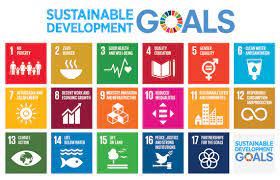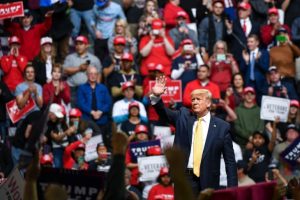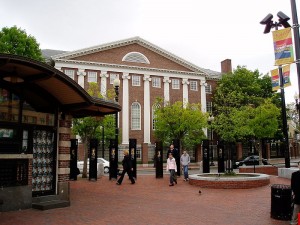
As the annual global stocktaking on the 2030 Agenda of Sustainable Development this year’s High Level Political Forum (HLPF) was held from July 6th to July 15th under the auspices of the UN Economic and Social Council (ECOSOC). Mandated in 2012, the HLPF is the main UN forum targeting sustainable development progress. The HLPF devises international political declarations and countries present their voluntary national reviews (VNRs) on progress in reaching the SDGs (Sustainable Development Goals). The HLPF also features a three-day ministerial segment. Apart from the 42 VNRs that states presented in 2021, the main outcome document of this year’s HLPF was a Ministerial Declaration. This Declaration had been negotiated for four months before the HLPF meeting and the Declaration was adopted by acclamation on July 15th. This most recent Declaration describes Agenda 2030 as a blueprint and plan of action to respond to and recover from the global Covid-19 pandemic.
The pandemic has had a substantial negative impact on many SDGs. In the first year of the pandemic alone:
- 150 million people across the globe have been pushed into extreme poverty;
- 24 million learners were at risk of not returning to school; and
- about one in six young people had lost their work.
Focussing on nine SDGs:
- 1 – No Poverty
- 2 – Zero Hunger
- 3 – Good Health and Well-Being
- 8 – Decent Work and Economic Growth
- 10 – Reduced Inequalities
- 12 – Responsible Consumption and Production
- 13 – Climate Action
- 16 – Peace, Justice and Strong Institutions, and
- 17 – Partnerships for the Goals,
the Ministerial Declaration highlights the negative effects on these goals and negative effects on other SDGs. Nevertheless, the international community reaffirmed its commitment to the Agenda 2030 and its individual goals calling for enhanced measures and intensifying the responses to the global challenges currently pertaining to Agenda 2030. However, The Declaration stops short, however, of concrete agreements on policy measures, or financial commitments to getting back within reach of achieving the SDGs by 2030.
Considering that the efforts to achieve Agenda 2030 were already in threatened – even before the pandemic – this failure to commit to action is disappointing. Even at the HLPF in 2019, the diagnosis there was that the global response to implementing the SDGs had not been ambitious enough and that accelerated action was needed. In 2020, marred by the early months of the pandemic, the HLPF was not even able to produce a Ministerial Declaration. At the time there was a lack of consensus among the states. Whoever was waiting for a “now-or-never” moment leading to a more ambitious Ministerial Declaration this current year would be disappointed. Despite explicit consensus that the knowledge, science, technologies and resources are readily available to make progress in the future, and despite the assessment of many of the current challenges pertaining to the SDGs, the political will and the willingness to compromise are lacking. One is struck that an opportunity to reconstruct the world and bringing Agenda 2030 closer, the goals was ‘thrown away’. As the UN General Assembly President Volkan Bozkir put it: “rarely has a society been given the opportunity for such a radical change”, but the ministers failed to capitalize on this opportunity and appeared to be paralyzed by politics and narrow national interests.


